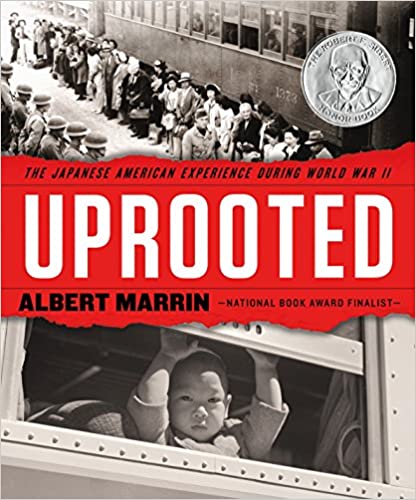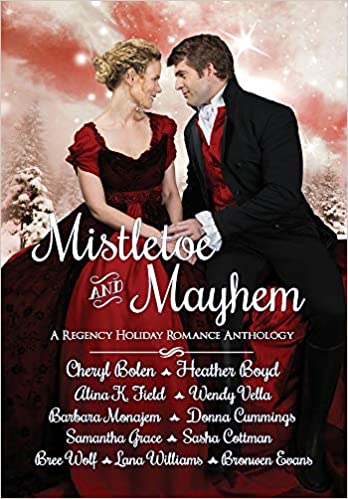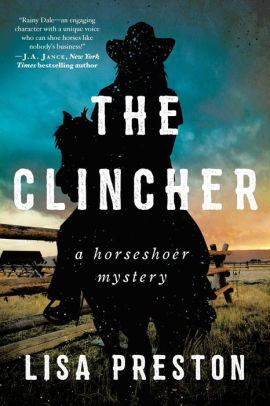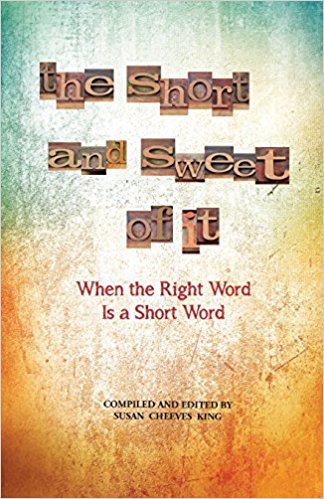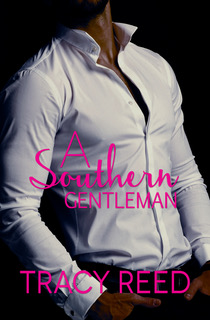Criticism: Big Girl Panties for Ruth by Jenny Jensen
February 19, 2021 by Jenny Jensen in category On writing . . . by Jenny Jensen tagged as constructive criticism, critiques, Editors, Jenny Jensen, writers
Or How to Take It on the Chin and Grow
(From our archives. We hope you enjoy this rerun from Jenny Jensen)
I attended an author’s chat the other day at our local library. It’s always fun to hear an author talk about their craft— especially if you like their books. The bonus is mingling with other attendees. Who among us doesn’t enjoy chatting with fellow book lovers? I found myself in conversation with two women, each funny, gracious and interesting. When talk got to the inevitable “so what do you do?” I learned Kit was a nurse and Ruth, a writer. I added that I’m an editor and while Kit smiled acknowledgment, Ruth scowled.
Ten minutes later—after Kit had smiled apologetically and bowed out—I’d learned all about Ruth’s experience with editors. “They call themselves editors, but they’re really just critics. They couldn’t even follow the story, let alone the subtext. They’re just mean, simple-minded wannabe writers” and so forth. Yowza! I’d never encountered that before. I know a lot of editors, and none of them fit that bill. Best to just nod and try to look sympathetic while keeping an eye peeled for a graceful escape. Ruth had either met the world’s worst editors, or she’s simply unable to handle criticism. I suspect the latter.
Writing is hard, solitary work. It’s just you creating in a vacuum. Writing requires hours of reading, writing and revising, searching for just the right words to make a character live and breathe, the perfect plot twist, the right feel. Writing writing writing, and then hours of revision. The whole blood, sweat and tears combo. Then there’s the criticism; every writer has to face it if they want to share their work outside that creative vacuum.
It can be a hard pill to swallow. I know. I’ve been singed by some very savvy, very critical edits. Hard to have your heart and soul — not to mention all that BS&T—picked to pieces by others. But like mammograms, taxes and dirty diapers, it has to be faced.
As an editor, I’m really loath to offer a ‘critique’. That word has such baggage. If words have color, then criticism is a red-tinged pulsating mash-up of bruised blue and black. I prefer to think of what I do as editorial assessment, or an overview. (Words really are powerful, aren’t they?!) But no matter how I spin it, it comes down to criticism.
Criticism is like cholesterol; there’s the good kind and the bad kind. The LDL kind, the bad kind, is empty criticism. “ I don’t like it”, “Flimsy and transparent” or “I don’t get it”. My favorite being, “yeah, I read it. Interesting”. Ouch! Then there is the polite, painless approach: “Very nice!” What could that possibly mean?
Constructive criticism is HDL cholesterol, good for every writer’s circulation. Good criticism points out pitfalls and weaknesses, but it also explains why they are pitfalls and weaknesses. It sheds light on why it doesn’t work. Really good, healthy criticism offers solutions. I never expect an author to accept a solution I offer (and most don’t, they find their own). I offer it as a straw man—something to consider, breakdown, reject and replace with a better approach because suggesting a substitute shows the author the problem needing a solution. It’s because a writer creates in isolation that they can’t always hear a misstep. I’m guessing Ruth’s missed subtext was so sub it wasn’t there. Point this out to a writer and the light bulb goes on; they revise, and the story is stronger.
How should you, as a writer, react to criticism? You wrote it, you shared it—you must learn to account for it. How do your words strike people? Did the reader see nothing where you intended a scene to be revealing or suggestive, and so the story is confusing? You can’t dismiss the reader as thick, dense or stupid. You have to look at your words and consider improvement because clearly, those words didn’t do the job you had intended. Whether it’s a missed plot point or character motivation that can’t be seen, maybe it isn’t on the page; it’s still in your head. Revise, rewrite. Listen to the audience your words are intended for. The best writers respect their readers. Your work will only get better.
A good editing critique helps you identify weaknesses. Don’t take it personally. Constructive criticism is useful precisely because it isn’t personal. Your BFF is unwilling to risk a response that might be hurtful, but is that what a writer needs?
Writing’s about kicking doubt in the ass and shoving him out the door. Editing’s about inviting him back in for tea and scrutiny. *
I wish Ruth had invited her editor back in.
*from @novelicious, that magical twitter feed that is double chocolate for every writer’s sweet tooth.
0 0 Read moreEditors and Agents All Month Long by Kitty Bucholtz
December 10, 2020 by Kitty Bucholtz in category It's Worth It by Kitty Bucholtz, Writing tagged as Agents, editing, editor interview, Editors, encouragement, Jennie Nash, Kitty Bucholtz, revision
I’m excited to share with you that I have a mini-season on my podcast all about editing in honor of all the first-drafting that went on in November for National Novel Writing Month. Five episodes of editors and agents talking about editing and giving you their best tips. Jennie Nash, my first guest, even gives you two handouts!
Check out the episodes every Thursday on WRITE NOW! Workshop Podcast. You can find it on your favorite podcast app or watch the episodes on YouTube. Be sure to subscribe, either way, so you don’t miss out! In 2021, I’ll be moving to seasons, which means there will be a couple weeks in between without an episode and I don’t want you to miss anything.
Here is the first fabulous episode with Jennie Nash from Author Accelerator. She offered two free handouts as well! One is here on the show notes page, and the other is on her website.
As we finish up a difficult year, I also wanted to share my Encouraging Words episode with you. I hope you find it uplifting and hopeful. Merry Christmas, Happy Holidays, and Happy New Year!
Are All Editors Created Equal?
March 31, 2020 by The Extra Squeeze in category The Extra Squeeze by The Extra Squeeze Team, Writing tagged as children's book editors, Editors, Fiction editors, non fiction editors
Dear Extra Squeeze Team,
Are all editors created equal? Do you need one type of editor for adult fiction, and a different type of editor for a picture book?

Rebecca Forster
USA Today Bestselling author of 35 books, including the Witness series and the new Finn O’Brien series.
Not only are all editors are not created equal, there are many people are promoting themselves as editors even though their only credentials are that they like to read and they were good in English. So, before you spend a ton of money are a few things to think about.
1) Do you need a story editor, a line editor or just someone to double check for typos? Personally, I always need a story editor. My books are intricate, and I am known for twists and turns. A story editor* keeps me on track with red herrings, challenges me to push the envelope, and gives me perspective on the plot/story as a whole. I couldn’t live without this input.
2) Overall editors are hard to come by in my humble opinion unless you are willing to pay the price. It is no easy job to take a book from start to finish when you’re an editor. When I was traditionally published, I often had three separate editors, each charged with perfecting a different part of the process. If you’re looking for just that one person, make sure you are clear up front so they can price their bid accordingly.
3) An editor works for you and you should select one carefully. I tested a reader who swore she was an editor. She had found some things in a published book, and I was impressed with the detail and her attitude. However, when I sent her test pages (for which I paid her), she missed the typos and grammar issues that I purposefully left in to gauge her level of expertise. She was a great reader and had caught some mistakes, but she was not an editor.
4) When you find a great editor, it is a thing of beauty. Remember, some are literally brilliant* and the good ones will be able to work on any book in any genre. This is because they understand that individual marketplaces call for different sensibilities. They will read a romance differently than they read a mystery. If you find one of those, hang on to her/him.
*For transparency, the fabulous story editor I have worked with since my first book is my Extra Squeeze colleague, Jenny Jensen.

Jenny Jensen
Developmental editor who has worked for twenty plus years with new and established authors of both fiction and non-fiction, traditional and indie.
All editors are created as equally as all dancers, or singers, politicians or writers, but that’s not really what you’re asking. A good editor wears different hats, each for different genres. And then there are the specialists who focus their skills, most notably in academics, poetry and children’s literature.
I’ve worked on USAF manuals, fiction of all flavors, history and biography and business materials. I wore a different editing hat for each. A lot of the rules are the same, but each genre has a different intent and any useful editing must be done with that intent top of mind. The flow, pacing and characterization of a thriller are light years from those of business material (though maybe marketers should rethink that). Each of those hats comes with my confident understanding of the author’s intent so I can see any problems and add to the intended message. I think this is true of most editors.
I’ve turned down work twice. The first was a treatise on the physics of string theory. At least that’s what I think it was. I had no hat for this and so could offer nothing but a suggestion for a more suitable editor. The second was a children’s picture book. I love children’s books. I read the manuscript and tried to find a hat that fit. I soon realized this required a special knowledge, an insight into the reader’s mind and the author’s intent; knowledge and insight for which I don’t have a hat.
So yes, I do think that an author of a children’s picture book should find and build a relationship with an editor whose specialty is children’s lit. That doesn’t mean she would be better created, just that she was the best at dancing and singing to that tune.
H.O. Charles
Cover designer and author of the fantasy series, The Fireblade Array
I would say it depends on the experience of the editor. Some are quite capable of understanding the different styles and switching accordingly. Some are not. Look at the work they’ve previously done and see how it aligns with your own.
That said, sometimes an editor from another genre can bring a fresh perspective that could help you break away from the norm and set your work apart from that of other writers. Great books are often ones that cross genres and re-purpose other styles.

Ever wonder what industry professionals think about the issues that can really impact our careers? Each month The Extra Squeeze features a fresh topic related to books and publishing.
Amazon mover and shaker Rebecca Forster and her handpicked team of book professionals offer frank responses from the POV of each of their specialties — Writing, Editing, PR/Biz Development, and Cover Design.
An Editor’s Ingredients by Jenny Jensen
November 19, 2019 by Jenny Jensen in category On writing . . . by Jenny Jensen tagged as Editors, working together, writing
A perspective client and I were in the first stages; you know, where you get a feel for one another to be sure of a good fit. It was a great exchange. She was funny and literate and serious and we quickly decided to move forward (I passed muster too!). Before she sent her manuscript she had one last question: What are the five things a writer should bring to the editorial table. Great question!
My response:
- An open mind
It’s understood that a writer’s work, partial or finished, represents an enormous personal investment. A lot is at stake here. As an editor I respect that. It’s my job to fully grasp the story’s intent and help the writer realize their vision. To make use of that the writer must have the clarity of thought to look beyond their own words and consider a different, well considered perspective. If I interpret a scene as night when the writer intended day it isn’t because I am too dim to get the intention. It’s because the scene as written did not convey the intent. And it’s likely that I will not be the only one who reads it as night. The writer must be aware and open enough to consider and appreciate input outside their box. - Flexibility
Change is likely required. If some aspect – character, setting, plot point etc. – isn’t right then it requires change and change requires flexibility. My job is to point out what doesn’t work and why. I suggest options, which is often the best way to illustrate why something doesn’t work. Sometimes my suggestion resonates with the author and they use it – always with their own spin. That’s grand and they are welcome to the suggestion but more often than not a writer understands the need for change and does so in a direction I never considered, and it works beautifully. That’s when I’m certain I’ve done my job – I’ve highlighted a weak point and the author sees the breach and jumps in with writerly eyes and fixes it. - A thick skin
Editing isn’t personal. I’m not afraid that my input might hurt feelings. I’m not viewing the manuscript through a friend’s eyes. I’m concerned only with the voice and vision of the work I’m reading. I, as with any good editor, will not hesitate to point out any and all flaws I see. Derisive criticism is a waste of energy and is never constructive. I don’t use it so the author must be able to view the criticism within the context of the story and not as a personal attack. We’re not in this to become BFFs. We’re in it to make the work fantastic. (Though it’s lovely to note that many clients have become warm friends.) - A working disposal system
Every writer has lovingly crafted passages they feel are superb. The words flow like melted chocolate, the character is brilliant, the setting is ripe with atmosphere. It reflects the best of your talents. But what if it doesn’t fit the rhythm of the story? It has to go. Same with all that carefully researched data. If it isn’t useful, if it doesn’t add to the tale, dump it. A writer has to have a ready and willing disposal system. Of course, it doesn’t impact the story to keep a file where all those brilliant bits can be held for future use. - Gumption
With writerly eyes wide open, a brain elastic enough to entertain new possibilities, a skin thick enough to repel the personal and a fully charged ability to delete any detritus, all the writer needs is the passion, the discipline…the gumption to implement the editor’s input. Rewrites are always part of the mix – sometimes just a few scenes, sometimes entire portions. Often it’s the small tweaks that need careful handling to improve the story. Unless the writer has the gumption to go that last mile our efforts are wasted. My edits aren’t meant to discourage but to invigorate, to jazz the writer to make the story shine.
And I love doing just that.
1 0 Read moreFrom Our Archives: First Drafts
July 19, 2019 by Jenny Jensen in category On writing . . . by Jenny Jensen tagged as editing, Editors, first drafts, Quotes
Jenny Jensen is deep into a manuscript and unable to come up for air. We’re helping her out by posting one of her articles from our archives. Hope you enjoy it.
 Drafts
Drafts
I love quotes. I collect them, especially quotes about writing from writers I particularly respect. Since I work with writers of all levels from beginners to veterans, I find that sometimes the perfect quote from an established writer is exactly what I need to reinforce a point – so I use my collection well.
I just took on a new client who sent an outline for her first novel. The outline included a précis of the plot, quick character sketches, a few narrative bits on action scenes and several options for an ending. Buried in these concepts were the seeds of a very fresh new voice. I’m excited; it’s the kind of challenge I relish. It’s the perfect opportunity to ask the right questions, provide possibilities and help guide the story to a solid structure – all of which greases the writer’s creative wheels – the give and take nudging them to the path they want for their story.
Shitty First Drafts
The problem was the writer didn’t want to write a draft; she wanted to work with me to get the story full blown in her head then sit down at the keyboard and spit out a finished novel. Oh dear. I imagine there are writers who can do that but they’re as rare as the ivory-billed woodpecker. As Anne Lamott put it in her essay, Shitty First Drafts: “I know some very great writers, writers you love who write beautifully and have made a great deal of money, and not one of them sits down routinely feeling wildly enthusiastic and confident. Not one of them writes elegant first drafts. All right, one of them does, but we do not like her very much.”
“The first draft is just you telling yourself the story.” (TY Terry Pratchett.)
All first drafts suck. It’s a universal law. But it’s where you have to start. “The first draft is just you telling yourself the story.” (TY Terry Pratchett.) So give yourself permission to just spill it, write the most vapid dialog ever if that’s what comes out. It’s OK – it’s a draft. Just get the story out. If you find yourself using more adjectives than Danielle Steele and Judith Krantz combined then this is the place to do it. It’s a draft -no one will ever see it (except me but that’s all right ‘cuz I’ll never tell). Stewart Stafford hit the bull’s eye, “It’s okay to write a cliché in a first draft; it sets a marker that you can get far, far away from in the rewrites.”
The Rewrites
That’s what a draft is for – the rewrites. Here’s where the painful process of filling the blank page becomes fun. You see the flaws and get to slash and revise, hear the perfect dialog over the noise of what you drafted, maybe see a new direction in the wreckage. I’ve encouraged my client to write a first draft. I’ll happily work with her from that, but I bet she goes over it first – who could resist? Draft one or draft two, I don’t care. I can’t wait to see it.
Jenny
0 0 Read more
Affiliate Links
A Slice of Orange is an affiliate with some of the booksellers listed on this website, including Barnes & Nobel, Books A Million, iBooks, Kobo, and Smashwords. This means A Slice of Orange may earn a small advertising fee from sales made through the links used on this website. There are reminders of these affiliate links on the pages for individual books.
Search A Slice of Orange
Find a Column
Archives
Featured Books
UPROOTED: THE JAPANESE AMERICAN EXPERIENCE DURING WORLD WAR II
A Publishers Weekly Best Book of the Year, A Booklist Editor's Choice
More info →MISTLETOE & MAYHEM: A REGENCY HOLIDAY ROMANCE ANTHOLOGY
There’s no Christmas like a Regency Christmas spent under mistletoe! New York Times Bestselling author Cheryl Bolen and friends invite you to discover true love in eleven deliciously steamy romances in this all-new holiday collection.
More info →THE SHORT & SWEET OF IT: When the Right Word Is a Short Word
How do we say more with less? Can short, simple words make what we write so clear that the reader gets it? Or will it remind them of reading a child’s board book?
More info →A SOUTHERN GENTLEMAN
"A woman walks into a crowded Manhattan bar and meets a nice southern gentleman." That sounds like the beginning of a bad joke or the beginning of an intriguing love story.
More info →Newsletter
Contributing Authors
Search A Slice of Orange
Find a Column
Archives
Authors in the Bookstore
- A. E. Decker
- A. J. Scudiere
- A.J. Sidransky
- Abby Collette
- Alanna Lucus
- Albert Marrin
- Alice Duncan
- Alina K. Field
- Alison Green Myers
- Andi Lawrencovna
- Andrew C Raiford
- Angela Pryce
- Aviva Vaughn
- Barbara Ankrum
- Bethlehem Writers Group, LLC
- Carol L. Wright
- Celeste Barclay
- Christina Alexandra
- Christopher D. Ochs
- Claire Davon
- Claire Naden
- Courtnee Turner Hoyle
- Courtney Annicchiarico
- D. Lieber
- Daniel V. Meier Jr.
- Debra Dixon
- Debra H. Goldstein
- Debra Holland
- Dee Ann Palmer
- Denise M. Colby
- Diane Benefiel
- Diane Sismour
- Dianna Sinovic
- DT Krippene
- E.B. Dawson
- Emilie Dallaire
- Emily Brightwell
- Emily PW Murphy
- Fae Rowen
- Faith L. Justice
- Frances Amati
- Geralyn Corcillo
- Glynnis Campbell
- Greg Jolley
- H. O. Charles
- Jaclyn Roché
- Jacqueline Diamond
- Janet Lynn and Will Zeilinger
- Jaya Mehta
- Jeff Baird
- Jenna Barwin
- Jenne Kern
- Jennifer D. Bokal
- Jennifer Lyon
- Jerome W. McFadden
- Jill Piscitello
- Jina Bacarr
- Jo A. Hiestand
- Jodi Bogert
- Jolina Petersheim
- Jonathan Maberry
- Joy Allyson
- Judy Duarte
- Justin Murphy
- Justine Davis
- Kat Martin
- Kidd Wadsworth
- Kitty Bucholtz
- Kristy Tate
- Larry Deibert
- Larry Hamilton
- Laura Drake
- Laurie Stevens
- Leslie Knowles
- Li-Ying Lundquist
- Linda Carroll-Bradd
- Linda Lappin
- Linda McLaughlin
- Linda O. Johnston
- Lisa Preston
- Lolo Paige
- Loran Holt
- Lynette M. Burrows
- Lyssa Kay Adams
- Madeline Ash
- Margarita Engle
- Marguerite Quantaine
- Marianne H. Donley
- Mary Castillo
- Maureen Klovers
- Megan Haskell
- Melanie Waterbury
- Melisa Rivero
- Melissa Chambers
- Melodie Winawer
- Meriam Wilhelm
- Mikel J. Wilson
- Mindy Neff
- Monica McCabe
- Nancy Brashear
- Neetu Malik
- Nikki Prince
- Once Upon Anthologies
- Paula Gail Benson
- Penny Reid
- Peter Barbour
- Priscilla Oliveras
- R. H. Kohno
- Rachel Hailey
- Ralph Hieb
- Ramcy Diek
- Ransom Stephens
- Rebecca Forster
- Renae Wrich
- Roxy Matthews
- Ryder Hunte Clancy
- Sally Paradysz
- Sheila Colón-Bagley
- Simone de Muñoz
- Sophie Barnes
- Susan Kaye Quinn
- Susan Lynn Meyer
- Susan Squires
- T. D. Fox
- Tara C. Allred
- Tara Lain
- Tari Lynn Jewett
- Terri Osburn
- Tracy Reed
- Vera Jane Cook
- Vicki Crum
- Writing Something Romantic
Affiliate Links
A Slice of Orange is an affiliate with some of the booksellers listed on this website, including Barnes & Nobel, Books A Million, iBooks, Kobo, and Smashwords. This means A Slice of Orange may earn a small advertising fee from sales made through the links used on this website. There are reminders of these affiliate links on the pages for individual books.

